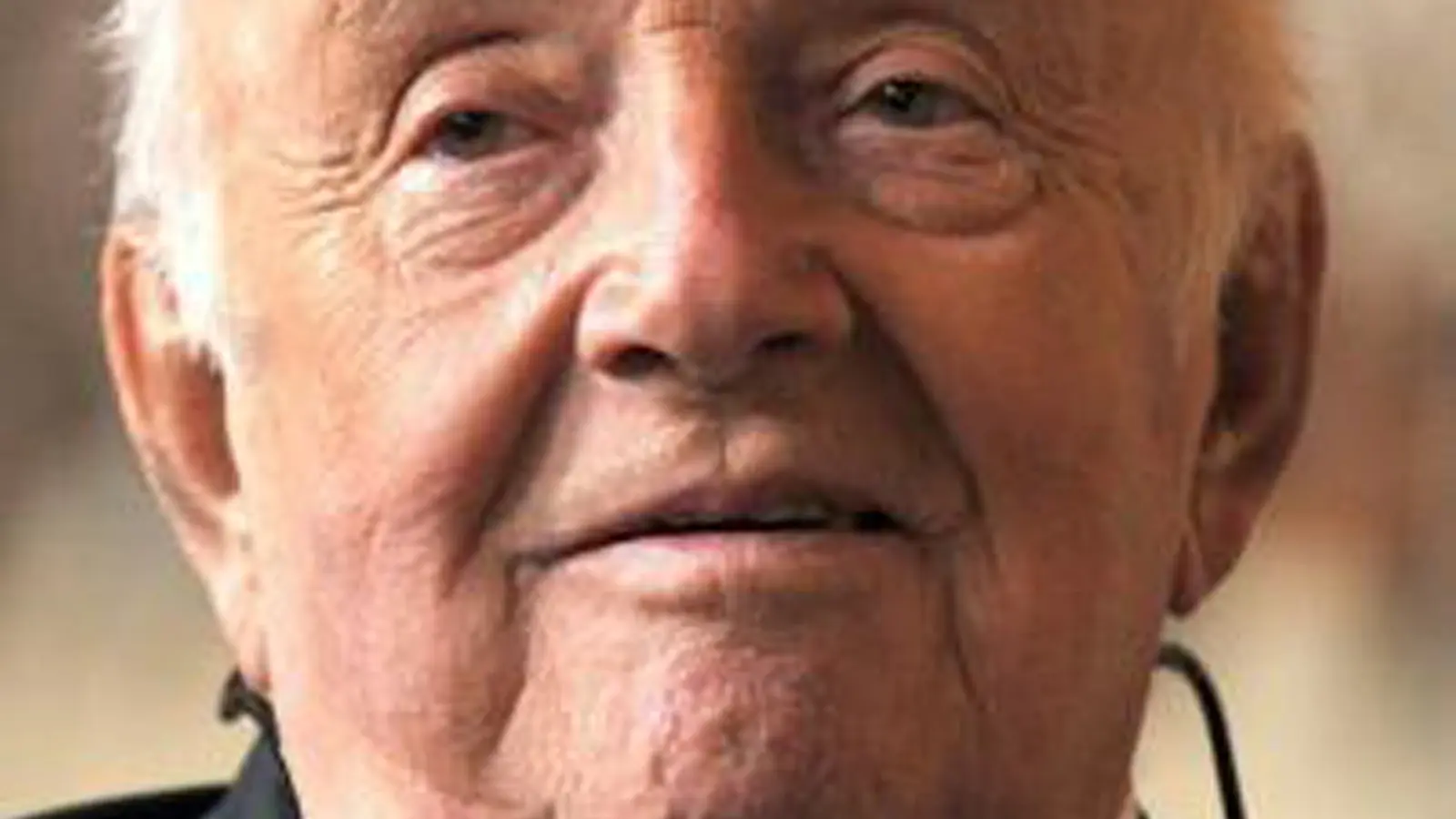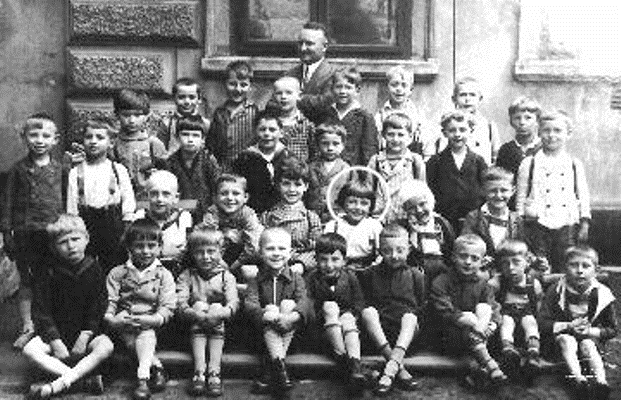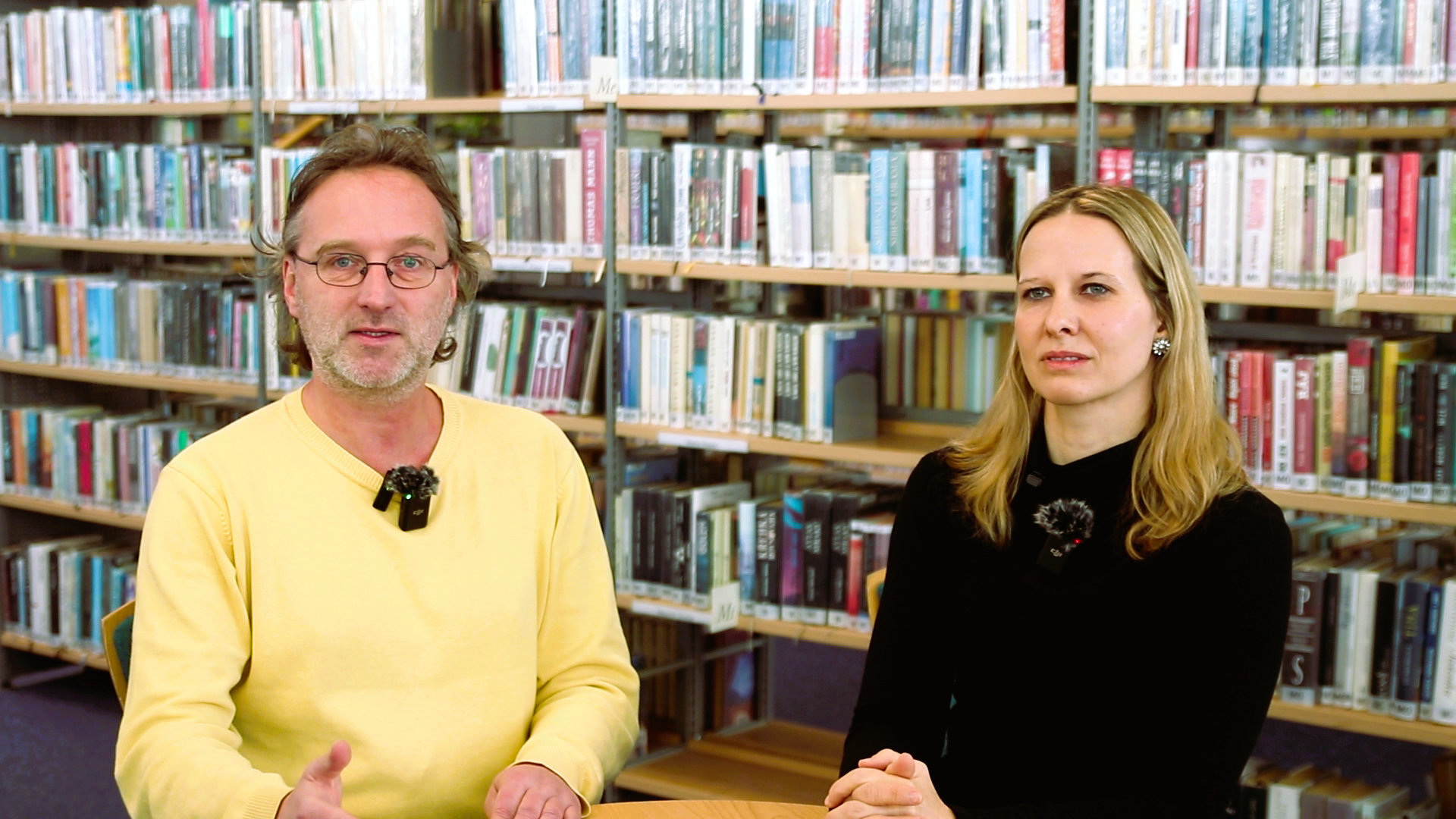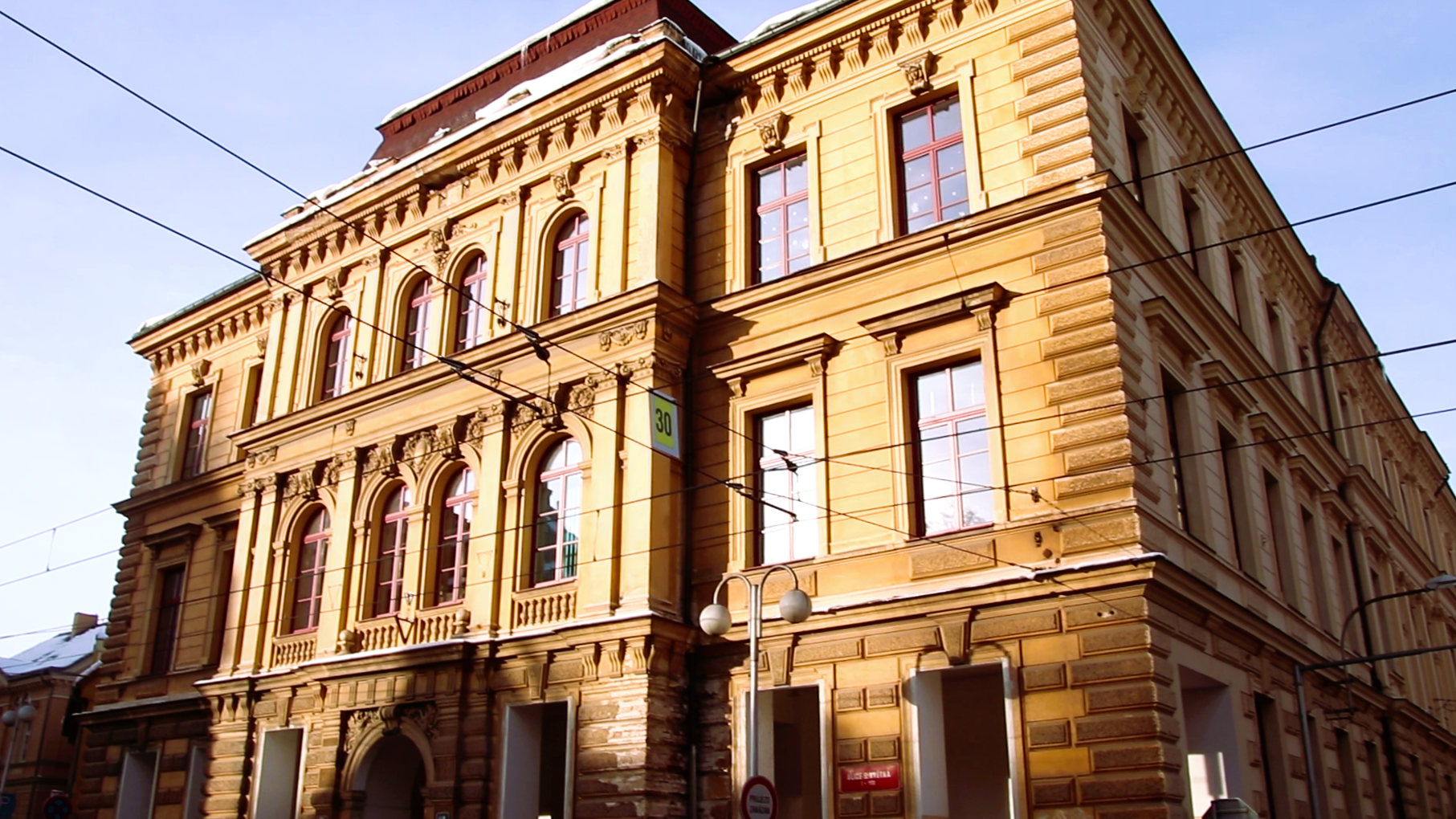
Encounters with Otfried Preussler, symbolic and real
Encounters with Otfried Preussler, symbolic and real
Der Kulturinformant
One of the most famous and successful children's book authors, the German writer Otfried Preussler (1923-2013), was born in Liberec 100 years ago. He spent the first 19 years of his life in Liberec before volunteering for the Eastern Front in 1942. From 1944, Preussler spent five years in Soviet captivity and, upon his return, settled in Stephanskirchen, Bavaria, near Rosenheim, where he worked as a primary school teacher.
He only visited Liberec, the place of his youth, 20 years later, when he was already a respected writer. He wrote more than 30 children's and other books, which sold more than 50 million copies during his lifetime and were translated into 55 languages.

My first personal encounter with the writer Otfried Preussler took place in 1977, when Czechoslovak television broadcasted the animated film The Sorcerer's Apprentice (Krabat, 1971). At that time, I was very interested and excited by this creepy, almost horror-like story. Not only because of the secret of the old mill and the adventures of the boys who work there, but because the evil magician is overcome by the love of the girl and Krabat, so that everything ends well in the end.
A little later I occasionally saw TV's Abendstern, which are short bedtime stories that also fascinated me like The Little Witch (1957) and The Little Aquarius (1956). The fairy tales, which are based on Preussler's original, were adapted by the artist and illustrator Zdeněk Smetana and told in a unique way by the Czech actress Jiřina Bohdalová. The stories of these supernatural, yet real characters are still very popular with children today.
Then came 1989. The revolutionary changes that brought freedom and with it, new editions of previously silenced writers. In this context, Otfried Preussler, who came from Liberec, was remembered.

In 1995 I co-founded the Jizera Mountains and Lusatian Mountains magazine and then ran it as editor-in-chief for five years. After a few issues had been published, Ervín Šolc visited me in the editorial office and told me that he was friends with Preussler and that our magazine was regularly sent to him in Germany. He even gave me a letter from him in which Otfried Preussler expressed his joy and enthusiasm that the magazine regularly informed him about the history and present of his old home region.
In 1996, Preussler's novel “Escape to Egypt via the Bohemian Kingdom” was published by the Prague publishing house Vyšehrad. I bought and read the book immediately, not least because it contains local information from the time of the Austro-Hungarian Empire and essential details about Preussler's work. The publisher asked me if it would be possible to publish a review of the book in my magazine. So I turned to two literary critics, but unfortunately one of the reviews was not very favorable to the work and the author. Preussler wrote to me soon afterwards saying he regretted the review that accused him of political misconduct. Fortunately, in the next few sentences he indicated that he could get over it. In 1998, the Vyšehrad publishing house published another book by Preussler. The title; “My book about the Giant Mountains” and this one was brilliantly translated into Czech by Ladislav Josef Beran and illustrated by the unique artist Adolf Born.

Later I suggested to Preussler that we could meet and prepare an interview for the magazine. He agreed, but serious illness of both the writer and his wife Annelies kept delaying the meeting until Otfried Preussler was finally able to offer a date for a meeting in May 1999.
We symbolically met him and his wife Annelies on August 31, 1999 at the Czech-German border, not far from Železná Ruda in Zwissel. One of her three daughters also lives there. Right from the start I found the famous writer to be very likeable, humble, helpful and extremely friendly. He answered my questions very carefully and with great interest. Only in the course of the conversation did I find out that we both grew up in the same part of Liberec, in the settlement of Králův Háj. Actually only a few hundred meters apart, with the difference that he had grown up forty years earlier, in a completely different space-time and in a turbulent atmosphere of striving for a new world order. Otfried Preusser kindly invited us to lunch and a short walk through Zwissel. Our conversation repeatedly referred to his former home and one sensed that the longing for his birthplace and homeland was unbroken.
Our interview was published in the November 1999 issue of the magazine "Jizera Mountains and Lusatian Mountains" and we reproduce part of it here.
We didn't shape the story
Your parents were teachers, do you have fond memories of your childhood?
We grew up with a lot of freedom and when the holidays started we would jump out of our shoes and stockings and run around half naked and become Indians and trappers. We also had fun at school. Of course we didn't love all the teachers, but it was a relaxing time. We had the Austrian school system, it was common knowledge that everything that came from the Habsburgs was bad, but this system prevailed. We hiked a lot with my parents and friends, especially in the Jizera Mountains; I knew it like the back of my hand.
What did you enjoy reading most as a child?
My father had a large library. I was able to borrow everything there to read. My father's instructions were always to handle the book very carefully and then return it to its place.
First I read the fairy tales about the jugglers and learned to understand the dramatic texts. The fairy tales were of course also told to me by my grandmother Dora, my father's mother. She came from the Czech village of Jivina near Mnichovo Hradiště. In addition to writing, my father also collected legends and I often traveled with him in the mountains. There he told me everything I had memorized from my books. Some days my father couldn't stop writing, he was so dedicated. There were no tape recorders back then. So he wrote in shorthand and made his own shorthand, but in the end he sometimes couldn't quite decipher his writing.
I have also written many stories, one of which was called Krabat. I read this fairy tale for the first time in a collection of legends from Lusatia. I had already remembered the name as a little boy and was captivated by the story that every year a boy had to die in this mill.
I only returned to Krabat after the war, when I came home from captivity.
You mentioned that you returned to Krabat after the war.
In the inventory box of Czech books there was also a book “Mistr Krabat” in Czech translation. I started working on this material and worked on Krabat on my own terms for ten years. My wife also helped me because I revise a lot of manuscript texts and also had a lot of unusable material and my wife would often take it out of the wastebasket and we would talk about it again. Also my good friend Dr. Pleticha from Varnsdorf kept urging me to finish the book. I consider myself an empirical writer, so for example I learned the technology of the old mill, how it works. Then I studied the miller's laws. It's set somewhere near Hoyerswerda and since I've never been to Lusatia, I ordered military maps from old Prussia with every house listed on them. I got all the maps, but unfortunately not the one from Hoyerswerda. I had to find somewhere the so-called “Black Mill” where the wizard lived. Then I thought to myself; it could be on the “Black River”, which actually flows there. So I decided to name the mill “Black Water”. Later it was also said that the mill had to be a little out of the way. It occurred to me that the mill could be in “Koselbruch” and the linguistic association - Bruch in German is perhaps not just a quarry, but also an area, for example a swamp area. When I was already writing the book and finally received the missing map, it was actually drawn where I had invented it. At that time, I received letters from people who lived there asking me if we might go to school together.
How do you explain the great success of all your books among children?
Children have very clearly defined interests and observations, they like interesting and funny stories. This is still true to a certain extent today, even with the internet and modern media. I write primarily for children who are still in that magical realm of addressed thoughts that every child inevitably experiences. They play with a pebble that becomes a little elf, with a piece of wood and that may be their child... this is an international phenomenon. Perhaps children in Japan, China or the Eskimos like to read the same fairy tales because it corresponds to their level of development and because here they can realize their imagination and their images in a playful action. I write fairy tales that the child can work with in their imagination, that's why I'm interested in that. There have been great writers who wanted to write for children, but they couldn't, they just didn't know the children. Perhaps we should put it more seriously: If you write for children, you have to love them, you have to know your craft and you have to have something to say. Maybe that's the secret.
Is it fair to say that your books contain a lot of autobiographical elements?
Yes all. Just by the fact that I wrote it. What doesn't come directly from my autobiography comes from what's inside me. Many elements come from my childhood and also from Liberec, Ještěd, the Jizera Mountains...

This conversation was not the end of my contact with Otried Preussler and we continued to communicate in writing. Sometimes he just had his friend Ervín Šolc from Liberec send greetings.
Preussler had had a heart condition for a long time, he suffered from diabetes and was overweight, but his healthy mind and optimism remained intact. Since 2010 he had lived in a senior residence in Prien am Chiemsee on the banks of this beautiful lake, where he died on February 18, 2013.
Even before his death, he was awarded numerous prizes, including the renowned Bavarian Maximilian Order for Science and Art.
A number of Preussler's plays were performed for puppet theaters and productions with live actors, including in Bohemia. On February 28, just ten days after Preussler's death, the ballet "The Sorcerer's Apprentice", choreographed by Jan Kodet, premiered at the National Theater in Prague. The main role of Krabat was played by Ondřej Vinklát, the son of the author of this article.
The following year, on November 3, 2014, Ervín Šolc and I prepared a full-length program about the life and work of Otfried Preussler for the Regional Scientific Library in Liberec. This was very well received by the public.
Last autumn, a specialist conference was held in the library in Liberec to mark the centenary of the important writer's birth. You can find out more about the walk through the places associated with Preussler's life in Liberec from 1923 to 1942 in the article below.

A walk through Liberec, or where did the writer Otfried Preussler go for a walk?
The employees of the Liberec Regional Scientific Library Mgr. Františka Dudková Párysová and Mgr. Marek Sekyra have prepared a walk on the occasion of Preussler's 100th birthday, which will take visitors through the places in the city associated with the famous writer and storyteller. I would now like to take you on the walk with its organizers.
We met at the Regional Scientific Library, from where Františka and Marek led us to a nearby house at 755/47 Sokolská Street, where Otfried was born on October 20, 1923. The friendly librarian Františka takes the floor and tells us the family story.
A girl named Liselotte was born before Otfried, but she died immediately after birth in May 1922. Otfried was followed by his brother Wolfhart in 1927. From 1921-28 the family also lived with their grandmother Dora, the father's mother, Franziska explains in conclusion.

The next stop is today's 5th května elementary school. The large building was used as a school before the war and was called the Rudolfschule. “Little Otfried lived about 700 meters away from the school,” Františka begins her story and continues: “He entered the first grade in 1929 and finished his five years of schooling in 1934. He is said to have learned very well and had no disciplinary issues or problems. This can be explained by the fact that his parents knew the local teachers well, as they were teachers themselves. His mother taught German, geography and history. His father worked at the neighboring teacher training institute, while at the same time doing historical research and "Dedicated to writing," concludes Františka, pointing to the move to high school, where Otfried continued his education in 1934-42.

This time Marek speaks in front of the former German state high school in Hálkov 6, where the Technical University of Liberec is located. "Otfried attended the eight-year high school here and graduated from high school with honors. At the same time, he began his literary experiments while still studying. He tried his hand at poetry and also wrote a controversial novel about a group of boys from the Hitler Youth. "He helped out in a harvest camp. Two days after graduating from high school he went to war. He volunteered for military service," says Marek Preusslers, explaining his life story.
We still have to visit Otfried Preussler's last residence. So we drive to a district called Kristiánov, to the settlement Králův Háj, and Františka takes the floor: “The then new housing estate was called “Schieferdörfl” because the houses had slate roofs and slate wall cladding”. The house is located near the Liberec reservoir, on the left side of which there is a forest and the wooded slopes of the Jizera Mountains are in sight. The sharp and bright eleven-year-old Otfried spent his childhood and youth in this environment. He left his homeland in 1942 at the age of nineteen. But before he went to the front, he got engaged to his girlfriend Annelies, whom he was only able to marry after many years of separation. He didn't return here at first because the family was deported to Germany in 1945.

We end our walk through the places associated with the writer Otfried Preussler back where we started, so to speak, in the Liberec library. We say goodbye to our helpful guide Frantiska. But at Marek's express request, we were invited to the library.
Of Preussler's rich literary work, the fairy tales “The Little Witch, The Little Aquarius and The Robber Hotzenplotz” are best known in Bohemia. The children also know the stories from the animated series TV Evening Star by Zdeněk Smetana.
Since the 1960s, Preussler has often returned to the places of his youth in Liberec and traveled to the Jizera and Lusatian Mountains and the Giant Mountains. That is why some of the themes and plots of his books come from the Liberec region.
For example, “The Angel with the Bobble Hat, The Flight into Egypt or My Turnip Book.” The book was published in Czech under the title “The Sorcerer's Apprentice”.
Based on Preussler's novel, German filmmakers made the successful feature film Krabat.
In order not to completely forget the famous countryman, an initiative was launched and we placed a memorial plaque on Otfried Preussler's home at 12 Čapkova Street.

